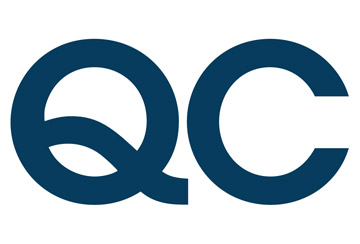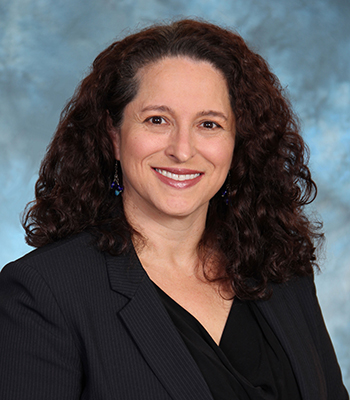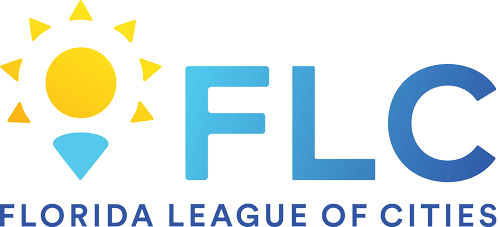By Joy Dickinson
Florida League of Cities
A gap often exists between city residents and their state representatives. Many residents don’t even know that they can be involved in the political process at the state level.
“Being an Ambassador for LVU [Local Voices United] has allowed me to reach out to citizens to give them a `voice’ in the process that they may not have realized they have,” said Dorothea Taylor Bogert, Mayor of the City of Auburndale.
Jen Ahearn-Koch, Vice Mayor of the City of Sarasota, also sees that role as an important one for ambassadors. “When the ability exists to communicate between elected officials and constituents, and we can help bridge that gap, we improve this essential need,” Ahearn-Koch said.
The LVU Ambassador program from the Florida League of Cities (FLC) is designed for elected officials who want to educate and engage their residents and business and community leaders in support of local self-government. As an LVU Ambassador, elected officials lead and inspire a new generation of local grassroots advocates to fight for Florida’s towns, cities and villages. Quality Cities (QC) magazine asked current ambassadors to share their experiences.
Q: Why is being an LVU Ambassador important to you?
David Will, Mayor of the Town of Redington Beach, says that being an LVU Ambassador has provided an opportunity to present facts about issues that affect his residents “so they can make up their own mind and think for themselves. Education is the key to advocacy.”
Residents like knowing how processes work, said Jeniffer Viscarra, Commissioner for the City of Sunny Isles Beach. “When they’re better informed, they can make better decisions,” Viscarra said. “And that benefits all of us as a collective.”
Being an LVU Ambassador opens a door for civics-oriented conversations that can address accountability of state leaders, Viscarra said. “I focus on process, not politics,” she said.
LVU has given elected officials a “quick and simple way” to get their residents involved in staying informed about actions at the state level and voicing their opinions, Taylor Bogert said.
Q: What types of activities have you done as an LVU Ambassador?
Taylor Bogert worked with Scott Dudley, Director of Field Advocacy and Federal Affairs at FLC, to set up meetings with local citizens and groups including the Rotary Club and chambers of commerce. Also, when she was serving as President of the Ridge League of Cities, she distributed LVU ambassador posters, which are part of the LVU Ambassador toolkit, and encouraged elected officials to participate. (To access the toolkit, go to localvoicesunited.com/ambassadors.)
Ahearn-Koch reached out to neighborhood leaders to tell them about LVU tools to help them stay informed about state actions “so they don’t have to feel like there is a disconnect, especially during session.” Residents can sign up to stay informed at localvoicesunited.com/join-us.
In 2023, Redington Beach held an informational meeting regarding proposed bills from the Legislature. They discussed the current law and how the proposed bills would affect them. “With facts in hand, our residents were able to make up their own minds regarding possible legislation,” Will said. “We also informed them of who those representatives are so they can make their voice heard in support or opposition to the bill.”
In Sunny Isles Beach (SIB), Viscarra had already developed the SIB Academy to educate residents about municipal government. When the first session ended, participants wanted to know what was next. Viscarra thought it would be a good opportunity to show residents how they could “go from spectators to participants at the state level, which means we have to bring people and government closer together.”
She has invited state representatives and Dudley to interact with residents about issues directly impacting the community. As part of her leadership with the SIB inaugural legislative advocacy initiative, Viscarra led the City’s efforts to explain important bills and share Home Rule email campaigns with residents. She uses her community newsletter to give insight into local and statewide issues that are important to constituents. “When action needs to be taken, I encourage readers to write to their state legislators and provide contacts and sample letters,” Viscarra said.
B.J. Bishop, At-Large Commissioner of the Town of Longboat Key, regularly attends regional, state and federal meetings of the FLC. “I bring that info back to our community and, where it helps, ask our community to reach out to state and federal elected officials.” Bishop, who also is the former elected Mayor of the Town of Leesburg, VA, has provided Dudley with the names of local groups that can be involved in LVU. “With today’s technology, we can have tremendous impact by asking our individuals in our communities to reach out to our representatives on legislation,” she said.
Q: What successes have you had as an LVU Ambassador?
Taylor Bogert noticed a “definite increase” in LVU registrations after meetings with local groups and the Ridge League of Cities.
In Redington Beach, residents are more informed and engaged in the process and know whom to contact about proposed legislation, Will said. “We are bridging the gap between Rep and resident,” he said.
Elected officials have seen residents take a stand on proposed bills that would be detrimental to their city. Viscarra said residents wrote in opposition to bills that sought to reshape the process of residential building permits. “This would have been devastating for Sunny Isles Beach,” she said.
Short-term rentals is another issue that residents have addressed. Sarasota is one of many communities struggling to address short-term rentals, particularly “hotel houses” that sleep 13 or more, in neighborhoods. “Our residents have been able to directly share their stories with state representatives,” Ahearn-Koch said. “While preemption efforts continue, the message that municipalities need to be able to respond to this situation in a meaningful manner is being made clear.”
Overall, Will said, his residents are getting involved and asking questions of their state representatives, such as, “What problem exists right now that this bill will solve, and who benefits?”
Q: What would you say to others who are considering becoming an LVU Ambassador?
The current Ambassadors have a unified response: Do it!
“It’s an easy way to help your citizens get involved and stay informed,” Taylor Bogert said. “Every voice helps and counts.”
The average citizen cares about issues but is busy, Viscarra said. “Ambassadors show people a workable path for transitioning from spectators to participants,” she said. “And that strengthens our democratic process.”
Will adds, “Inform and educate the public to think for themselves. Be part of the solution.” He emphasizes that having a voice in government is a right that can be traced to the founding of our country.
For those who are concerned that they have multiple issues in their community, Viscarra suggests that if you don’t have time to address them all, perhaps pick three. “Make a dent,” she said. “And take others along for the ride.” Residents will appreciate not having to figure out issues for themselves while working toward your shared goals, Viscarra said. “You don’t have to tackle it all, because you are not by yourself,” she said.
Bishop found that getting to work with individuals from other communities having similar issues is gratifying. “It is also a great way to learn about issues not yet impacting our community that may be coming down the road,” she said. “My experiences both in D.C. [at the FLC Fast Fly-In in Washington] and Tallahassee provide great insight into how our elected officials see things from their perspective, and I hope we can help them see it from our local perspective.”
The more voices that are included, the more likely the outcomes will adequately serve the population, Viscarra said. “Ambassadors add voices to the conversation,” she said. “That is incredibly valuable.”
Joy Dickinson is the Senior Editor at the Florida League of Cities.






